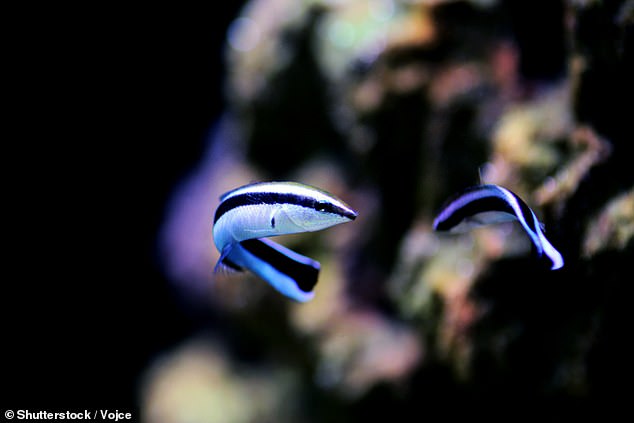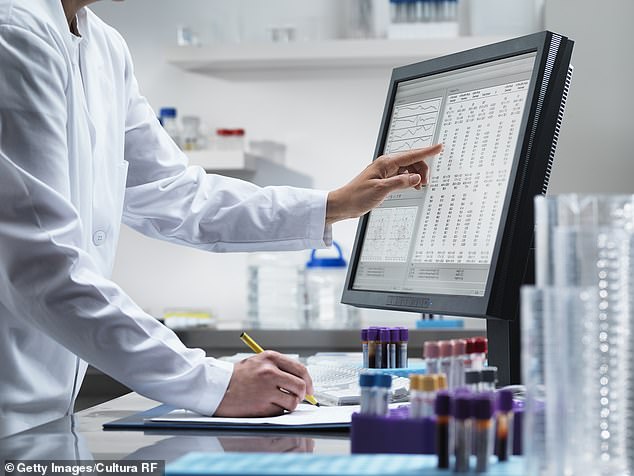Unlikely animal has sophisticated self-awareness only ever seen in humans, scientists reveal
Researchers have discovered that a small tropical fish can record itself in a mirror before attacking another fish, suggesting that the fish has advanced self-awareness.
The cleaner wrasse, a finger-sized coral reef fish and a territorial species, was the first fish to pass the ‘mirror test’.
Scientists use this assessment to determine whether an animal recognizes its reflection as its own body and not that of another animal.
Now, new research has found that this fish not only knows when it’s looking at itself, but it also uses its reflection to compare its own body size to the size of a threat.
New research has found that the cleaner wrasse looks at itself in a mirror before attacking another fish
“Our research has shown that cleaner fish are the first non-human animals shown to have personal self-awareness,” the researchers said in their report.
The research team, led by Taiga Kobayashi at Osaka Metropolitan University in Japan, performed two types of tests on 15 wrasses.
Each fish was tested individually and the team published their findings in Scientific reports.
The first test assessed the fish’s willingness to attack. The researchers showed a wrasse in an aquarium an image of another wrasse that was 10 percent larger or smaller than the live fish.
Regardless of the size of the fish in the photo, it was the real fish that attacked.
Next, the researchers tested whether the presence of a mirror would influence the fish’s decision to fight.
They repeated the first test while also showing the live fish a mirror.
The aquarium was divided to prevent the fish from seeing their own reflection and the photo at the same time.

After looking at themselves in the mirror, the fish competed with the photo of a smaller fish, but not with the photo of a larger one

These findings should help scientists better understand self-awareness not only in other animals, but also in humans
This time, the researchers found that the live fish looked at their reflection before deciding whether or not to fight, which seemed to influence their choice.
When the live fish looked at themselves in the mirror, they only attacked the smaller fish, not the larger ones.
This suggests that the fish assessed themselves against the threat and weighed the risk of attack before making a decision.
“This was unexpected, because we had a perception that this fish always shows aggression towards rivals, regardless of size,” Kobayashi said New scientist.
This is the first time that a non-human animal has shown mental states – such as a mental body image, norms, intentions and goals – that are part of ‘personal consciousness’ or the awareness of one’s own internal states.
“These findings suggest that cleaner fish likely have two mental states: a mental image of their body and internal standards for comparing body size,” the researchers wrote in their report.
But there are no mirrors in the ocean. This raises an important question: how did the cleaner wrasse evolve this unique ability?
In both the wild and the lab, it’s beneficial for fish to be able to compare their own size to that of a threat before they attack, Kobayashi told New Scientist. The results of this study suggest the fish are smart enough to use the mirror as a decision-making tool, he said.
These findings have important implications for our understanding of self-awareness, not only in other animals, but also in humans.
“The results showing that fish can use the mirror as a tool may help clarify the similarities between the self-awareness of humans and animals and provide important clues for the development of self-awareness,” Kobayashi said in a press release.
